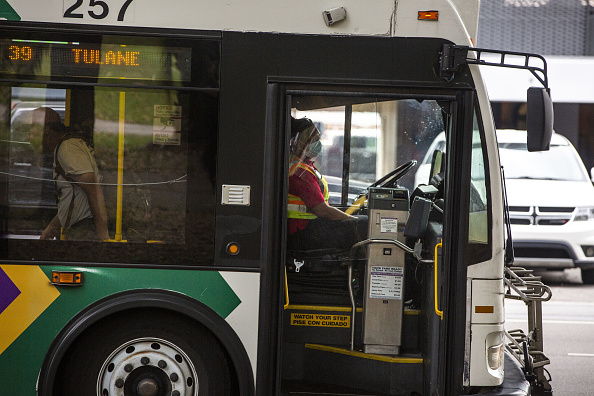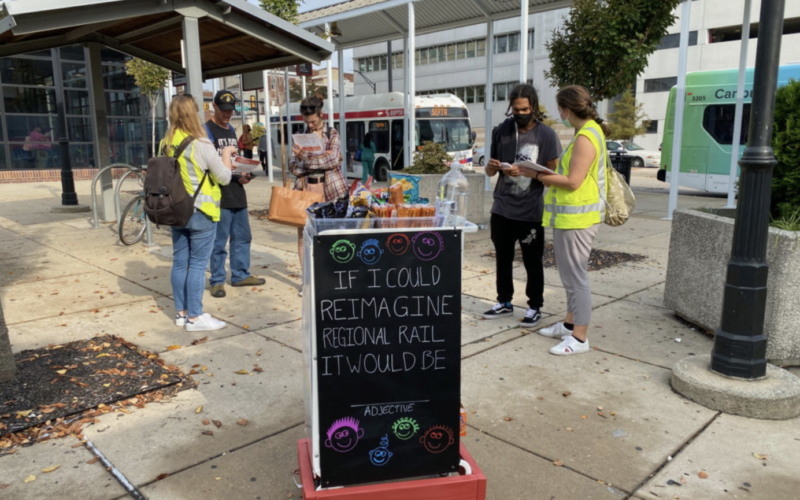
Along with urgently-needed protective equipment like N95 masks and hand sanitizer, expanded sick leave and quarantine policies are indispensable to protect the transit workforce. Through these measures, transit agencies can enable workers who are sick or may have been exposed to the coronavirus to remain home without worrying about lost pay.
Absent strong sick leave policies, transit workers who may have COVID-19 are forced to make an “impossible choice”: show up to work to secure a paycheck — putting others at risk — or stay home without pay to protect their colleagues and passengers.
Many transit workers have had to face this choice. In New Orleans, one of the nation’s hardest-hit cities, bus operators reportedly fear retribution for calling in sick because “Transdev, the company that manages [the city’s] public bus and streetcar system, is still not offering employees additional paid sick leave.”
Other agencies, meanwhile, have expanded sick leave and introduced quarantine policies that enable workers to make the safe choice without fearing the financial consequences.
In addition to providing full pay beyond the third day of illness for any worker who has tested positive for COVID-19 or who was directed to self-quarantine, SEPTA in Philadelphia has made it easier for employees to secure sick leave by waiving the documentation required for sick leave pay and eliminating the waiting time normally required to receive sick benefits. The agency has also suspended its attendance points system, through which employees typically accrue points for things like unauthorized absences or late attendance. Suspending the system eliminates the risk that employees will incur disciplinary action for coronavirus absences.
Chicago’s CTA has implemented a strong quarantine protocol. Employees who show symptoms of the virus are immediately sent home, and the agency notifies close contacts (people who were within six feet of the symptomatic employee for 10 minutes or more) and gives these contacts 14 days of paid sick leave. The agency also posts a notice in the workplace explaining that a co-worker has tested positive. This transparency is crucial: While agencies must protect the privacy of sick employees, it is important for workers to know when their risk of exposure may have increased.
Similarly, King County Metro in Seattle developed protocols to notify workers when they may have been exposed to the virus, with quarantine procedures that vary according to the level of risk. The protocols describe five scenarios, from low-risk to high-risk:
- Situation One: An employee has been in close contact with someone who was exposed to COVID-19, but neither individual is showing symptoms
- Situation Two: An employee has been in close contact with someone who was not showing symptoms at the time of contact with the employee
- Situation Three: An employee has been exposed to a diagnosed person with COVID-19, but the employee is not showing symptoms
- Situation Four: An employee is showing symptoms of COVID-19
- Situation Five: An employee has been diagnosed with COVID-19
For each scenario, the agency prescribes specific actions related to notifying a manager, self-quarantining, taking leave, notifying coworkers, and cleaning. In Situation One, for example, the employee does not need to notify a manager, self-quarantine, take leave, notify coworkers, or request enhanced cleaning. Situation Three, meanwhile, specifies that a manager must be notified immediately, that the employee must quarantine for 14 days, and that the employee may take leave (if they cannot telecommute).
By providing thorough guidance, King County Metro has removed the guesswork for employees regarding how to proceed in a given situation. Employees can take some comfort knowing that they and their coworkers are following the same playbook and contributing to a safer work environment for everyone.
Notably, both the CTA and King County Metro relied on guidance from state and local public health departments. Ongoing coordination with public health officials will be essential for transit agencies to continue adapting to shifting conditions imposed by the pandemic.
Close communication between management and labor is also a must. In Philadelphia, SEPTA’s sick leave policies were developed through negotiation with TWU Local 234, which was planning a job action. Maintaining dialogue with unions will help agencies better understand employee concerns and how policies can be tailored to serve transit workers.
At the national level, ATU International has pushed the sick leave conversation forward by developing a pandemic leave policy model that expands on the Families First Coronavirus Response Act (FFCRA) — a bill passed alongside the CARES Act. The ATU is calling for up to 15 days of leave at 100% of the regular rate of pay for any worker who has been affected by the virus, including those caring for family members (who would only receive two-thirds pay under the FFCRA).
Under the ATU proposal, workers still recovering from the virus or caring for family after 15 days would continue to receive two-thirds of their regular rate of pay. Given the uncertainty that will linger for at least next year — including the possibility of multiple waves of infection — sick leave policies resembling the ATU’s could become crucial to protecting transit workers and slowing the spread of the virus.
 New TransitCenter Report: To Solve Workforce Challenges Once and For All, Transit Agencies Must Put People First
New TransitCenter Report: To Solve Workforce Challenges Once and For All, Transit Agencies Must Put People First
TransitCenter’s new report, “People First” examines the current challenges facing public sector human resources that limit hiring and retention, and outlines potential solutions to rethink this critical agency function.
Read More A Transit Revolution in Philadelphia?
A Transit Revolution in Philadelphia?
The Southeastern Pennsylvania Transportation Authority (SEPTA) has been working throughout the pandemic on several system-wide planning initiatives that have the potential to transform transit service in and around the city of Philadelphia.
Read More